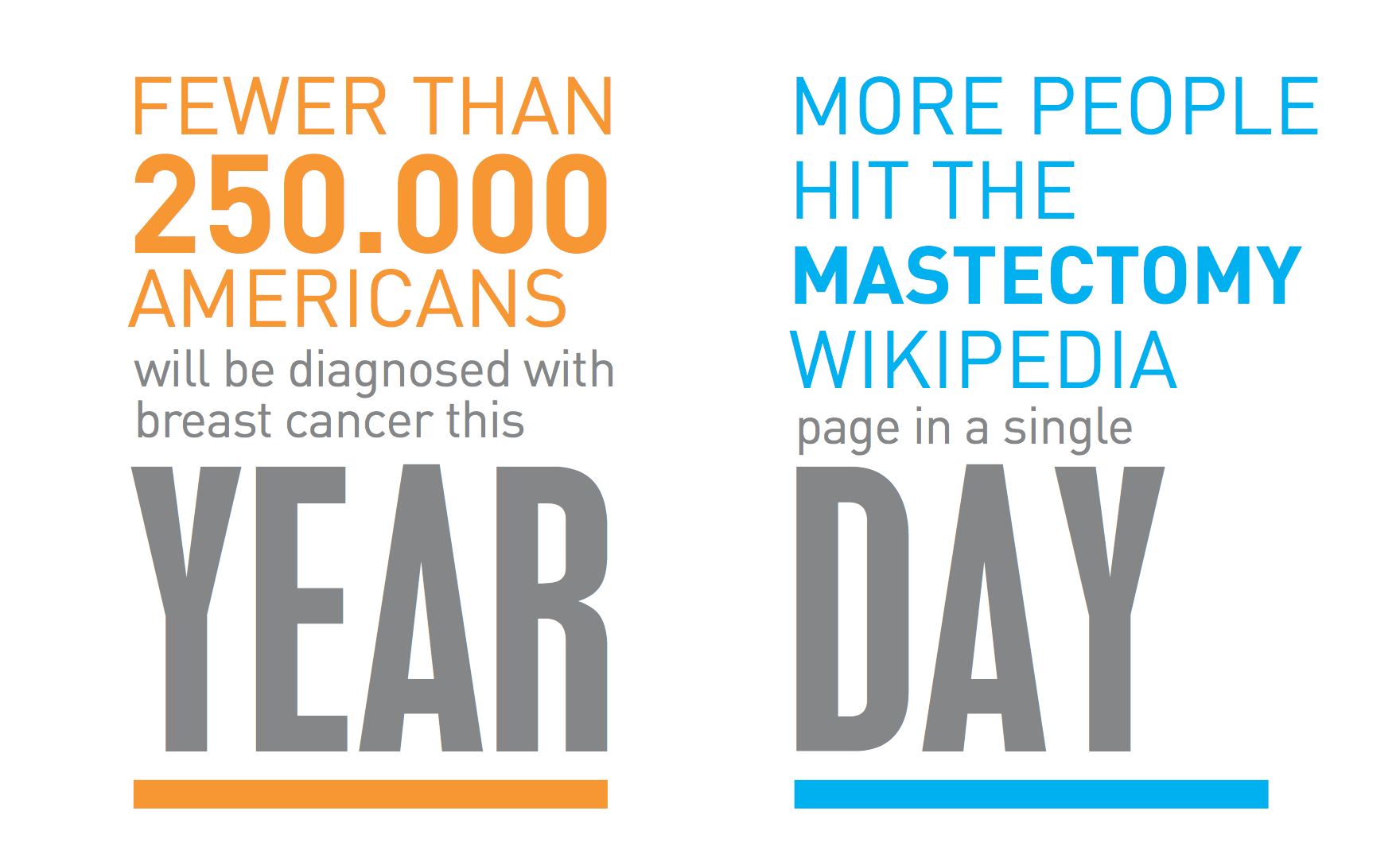
When Angelina Jolie came out last month and announced her double mastectomy in a heartfelt New York Times piece, the reaction was swift and unsurprising. Jolie made the cover of People. Time, too, adorned its issue with her image and the tagline "The Angelina Effect."
Angelina provides an interesting look into how the famous can drive conversations about health. She is a celebrity of status, and her story is both dramatic and complicated. Her mastectomy followed the BRCA genetic test, designed for women with a family history of breast or ovarian cancer, that turns up issues in only a small group of women. The lesson of Angelina's experience is unquestionably important, but it isn't universally applicable.
The Angelina news broke as we were completing our Social Oncology Project 2013 report, which went live last week and looks at online conversations about cancer from several different viewpoints. The report concludes that discussions about specific cancer types followed the ebb and flow of celebrity news, not research breakthroughs. Using those same analytics tools we applied for the Social Oncology Project, we took Angelina as a case study in how health information flows online.
First, we looked at Google Trends for how search behavior around "mastectomy" changed in the wake of the Angelina announcement. The result: skyrocketing interest in search.
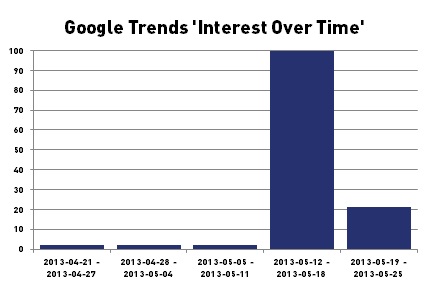
But search only goes so far. Once people pulled up a search page, were they clicking on links? Were they diving deeper? Wikipedia, the top search result for "mastectomy," gives a hint. The chart below is almost impossible to parse, the spike is so large. The mastectomy page usually gets just over 1,000 hits a day; the day of the Angelina announcement it rose 300-fold, or -- put another way -- a 23,000 percent increase:
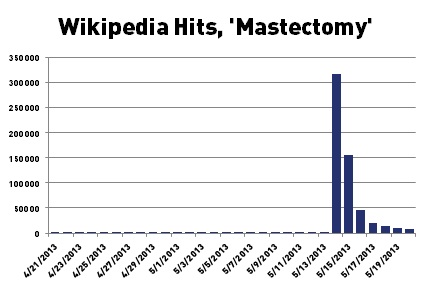
To put that in perspective, fewer than 250,000 Americans will be diagnosed with breast cancer this year. More people hit the mastectomy Wikipedia page in a single day. That gets us part of the way toward defining the "Angelina Effect." The next biggest question is whether it changed conversations. Sure, people were more educated, but did they jump online to talk about it in great numbers? The short answer: Heck yes, as the graph of online conversations (on news sites, forums, blogs and Twitter) shows:
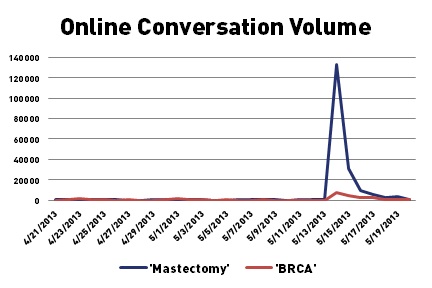
On an average day, there will be something less than 500 online mentions of mastectomy. Angelina's announcement pushed that in excess of 100,000 mentions. But that wasn't the only interesting piece of data. Angelina's story has two parts: one about her diagnosis (via the BRCA test) and one about her treatment (mastectomy). Given that public health officials often worry about overtreatment, we wanted to see whether it was the diagnosis piece or the treatment piece that drive conversations. The answer? Conversations about mastectomy were 16-fold higher than those about BRCA (usually, mastectomy conversations are twice as common). So the big lesson of Angelina was less about diagnosis and more about treatment.
That's where the last chart provides some context: The big question that should be asked is how many women who, like Angelina, are at high risk of cancer because of their family history and who have, like Angelina, sought more information about their genetic risks? The government last asked that question in 2010:
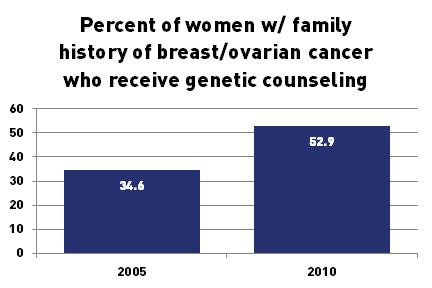
The answer is encouraging: Not only do most women at risk receive genetic counseling, the number is growing rapidly. That may muddy the real-world benefits of Angelina Effect: Her story is a tale not about the importance of mastectomy, but about the power of genetic testing to better understand risk. Fortunately, the government data makes clear that we've made great strides in making sure the right people understand that message. What's less clear is whether the hundreds of thousands of us buzzing about her surgery will also take away the right lesson.
For more by Brian Reid, click here.
For more on breast cancer, click here.